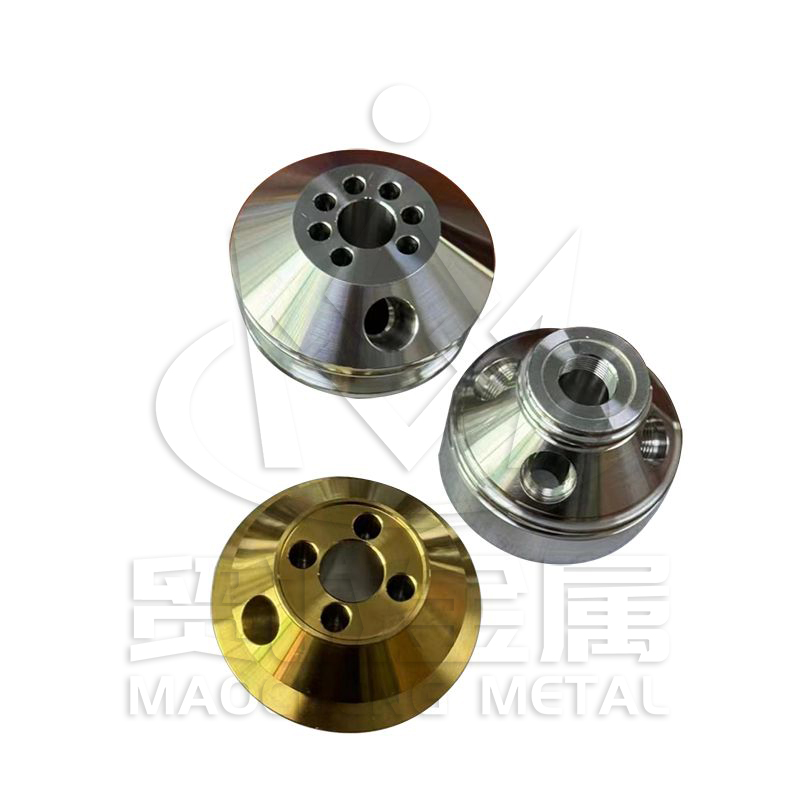Why Are CNC Machining Products Essential for Modern Manufacturing?
2024-12-17
In the world of modern manufacturing, precision and efficiency are key drivers of success. One technology that has revolutionized the production of high-quality parts and components is CNC (Computer Numerical Control) machining. This advanced manufacturing method uses computer programs to control machine tools, enabling manufacturers to create highly accurate and complex parts with minimal human intervention. But what exactly makes CNC machining products so essential in today's industries?
In this blog, we will explore the significance of CNC machining products, how they work, and why they are integral to industries such as aerospace, automotive, medical, and electronics.
1. What Is CNC Machining?
CNC machining is a subtractive manufacturing process that involves the use of computer-controlled machines to remove material from a workpiece to create a desired shape. The process is highly automated, using tools such as milling machines, lathes, grinders, and drills that are precisely controlled by computer software.
The computer program (often written in G-code) guides the machine to perform specific movements, enabling the creation of parts with high precision and consistency. CNC machining can produce parts from a variety of materials, including metals, plastics, and composites, making it a versatile solution for a wide range of industries.
2. Precision and Accuracy: The Core Benefits of CNC Machining
One of the primary reasons CNC machining products are so widely used is their precision. CNC machines can achieve extremely tight tolerances, which are critical in industries where even small deviations can lead to significant problems.
For example, in the aerospace industry, parts must meet strict quality standards to ensure safety and performance. Similarly, in medical device manufacturing, the smallest error could lead to catastrophic failures. CNC machining products ensure that every part is produced with the utmost accuracy, reducing the likelihood of defects and improving product reliability.
3. Efficiency and Speed: Reducing Production Time
CNC machining significantly improves production efficiency by automating the manufacturing process. Once the machine is set up and programmed, it can produce high volumes of parts with minimal human involvement. This reduces the time required for manual labor, speeding up production times, and ensuring that businesses can meet high-demand schedules.
Additionally, CNC machines can operate 24/7, allowing for continuous production. This is especially valuable in industries that require large quantities of parts or need to maintain rapid turnaround times for orders.
4. Flexibility and Customization in Manufacturing
While traditional machining methods may require specific tools for different parts, CNC machining allows for flexibility in design and customization. With CNC machines, manufacturers can quickly switch between different designs or production runs by simply changing the program. This flexibility makes CNC machining an excellent choice for producing both prototypes and large production runs.
For example, a company may need to produce a small batch of custom parts for a specific project or experiment with different designs to create a unique product. CNC machining can accommodate these needs with ease, allowing manufacturers to rapidly prototype and adjust designs without the need for extensive tool changes.
5. Complex Geometries and Intricate Designs
CNC machining is ideal for producing parts with complex geometries and intricate designs that would be difficult or impossible to achieve with traditional methods. Whether it's a precision gear, an intricate medical implant, or a complicated aerospace component, CNC machines can handle complex shapes with ease.
With multi-axis machines, CNC technology allows for the machining of parts with undercuts, curves, and holes in challenging positions. This makes CNC machining invaluable in industries like aerospace and automotive, where complex and highly detailed parts are often required.
6. Material Versatility: Adapting to Various Industries
CNC machining products are produced from a wide range of materials, offering manufacturers the ability to create parts suited to specific needs. Metals, such as aluminum, steel, and titanium, are commonly used in CNC machining due to their strength and durability. On the other hand, plastics and composites are ideal for applications requiring lightweight or non-corrosive parts.
In automotive manufacturing, for example, CNC machines can be used to produce durable engine components, while in the electronics industry, they are used to create precise components like connectors and enclosures. The ability to work with a variety of materials makes CNC machining a versatile solution across many sectors.
7. Cost-Effectiveness in High-Volume Production
Although the initial setup costs for CNC machining can be higher than traditional methods, the long-term savings are significant. CNC machines are highly efficient and reduce the amount of material waste produced during manufacturing. Because the process is so precise, there is less rework required, further reducing costs.
Moreover, once the setup is complete, CNC machines can quickly produce high volumes of parts without the need for additional labor. This combination of efficiency and reduced waste makes CNC machining an attractive option for high-volume production runs, helping businesses to stay competitive in price-sensitive markets.
8. Improved Safety and Reduced Human Error
In traditional machining environments, workers may be exposed to moving parts and hazardous tools, leading to potential safety risks. However, with CNC machines, many of these risks are minimized because the process is largely automated. Operators are required only to load the material and monitor the machine, rather than being directly involved in the cutting process.
Additionally, because CNC machines are controlled by precise computer programs, there is a reduced likelihood of human error. This improves both the safety of the workspace and the overall quality of the parts being produced.
9. Applications of CNC Machining Products
CNC machining products are used across numerous industries, including:
- Aerospace: Parts for engines, airframes, and landing gear
- Automotive: Precision components for engines, transmission systems, and suspension systems
- Medical: Surgical instruments, implants, and medical devices
- Electronics: Connectors, enclosures, and circuit boards
- Defense: Weaponry, military vehicles, and tactical equipment
Each of these industries relies on CNC machining products to produce high-quality, durable, and precise parts that are essential for their operations.
10. Future of CNC Machining
As technology continues to advance, the capabilities of CNC machining will only improve. Automation and smart technologies like artificial intelligence and machine learning are expected to enhance the efficiency, precision, and customization of CNC products even further.
For instance, in the future, CNC machines may be able to make real-time adjustments during production to optimize processes and reduce errors. These advancements will further solidify CNC machining as a cornerstone of modern manufacturing.
Conclusion: Why Are CNC Machining Products Vital for Modern Manufacturing?
CNC machining products are essential in today’s manufacturing landscape due to their ability to produce high-precision parts efficiently, with minimal human intervention. Offering flexibility, complex design capabilities, and cost-effectiveness, CNC machining is a key enabler of modern production lines across a wide range of industries.
Whether you are producing aerospace components, automotive parts, or medical devices, CNC machining ensures that every part is manufactured with the highest standards of quality, accuracy, and reliability. As technology continues to evolve, the role of CNC machining will only become more integral to shaping the future of manufacturing.



